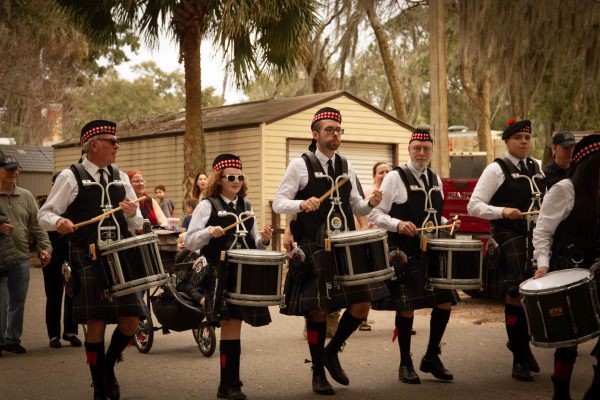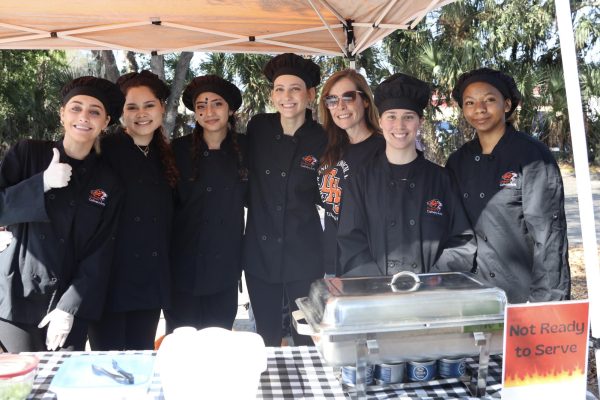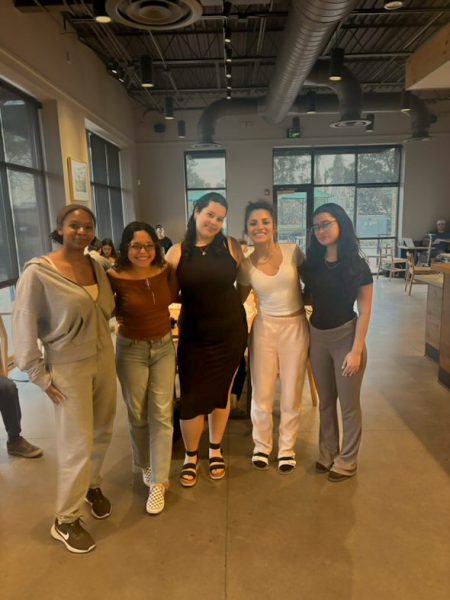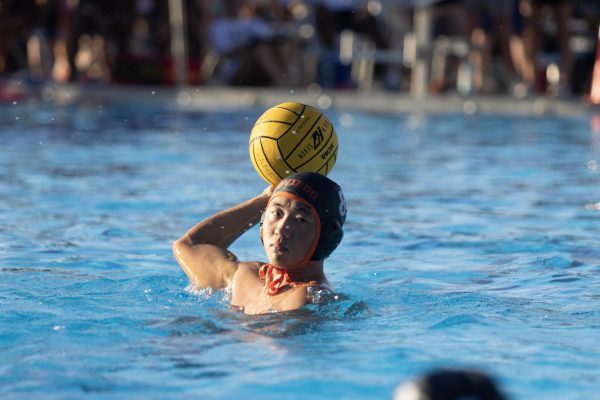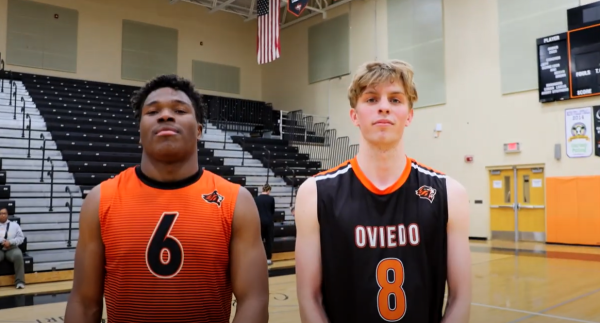New Jewish Student Union club faces adversity with positivity
Junior Seth Pisano hangs decorations in adviser Shayna Hron’s room for preparation of the Jewish Student Union’s end of the year party on May 19, 2017.
WEB EXCLUSIVE
*Name withheld upon request.
For seven decades, students have learned about the Holocaust, hearing about the horrors of that time.
Despite the passage of those seven decades, “anti-semitism” is not a foreign concepts to those of the Jewish faith, according to Jewish students and teachers alike.
“In a lot of schools in this area, we’re seeing a lot of anti-semitism going on; people don’t want to admit it’s happening, but there have been numerous, very, blatantly hateful things that have occurred in other schools in this area, [including] this school,” said AP English Language and Composition teacher Shayna Hron, who is Jewish herself.
This predicament has encroached upon the lives of students such as freshman Maria Grossman.* Grossman said she had her first encounter with anti-semitism when she began on her first year of high school.
“Everyone remembers their first experience; for me, it was some student making a joke that I was going to ‘Jew Camp’ when they overheard I was going to a convention for my local youth organization, [then] the student held down my arm on a desk and drew a Swastika on me,” Grossman said. “A slew of Holocaust ‘jokes’ continued and I was called a ‘nasty Jew’ or [told] ‘shut up, you can’t say anything because you’re a Jew’ when I would join conversations.”
Because of events like these, Grossman felt coerced into hiding her identity–out of fear of others hatred.
“There are two reactions to this kind of hate: you can either hide your religion, take off your star and not admit you are Jewish; or, you can proudly wear your star, be proud of your religion and fight for the cause,” Grossman said. “I found myself not telling people I was Jewish.”
Like Grossman, junior Zach Klauber said he also experiences hate for simply being Jewish, but he attempts to remain strong.
“I get a lot of jokes thrown at me, but I never receive them as serious,” Klauber said. “Only once in my life have I ever felt discriminated against. In eighth grade, I was told by another student that I couldn’t talk to this one girl because she was Catholic and I was Jewish.”
According to Klauber, whenever he receives personal attacks on his religion, he is blown away at the audacity.
“I feel dumbfounded that I am told those things that; I never expected to hear something like that,” Klauber said.
Taking action
In Feb. 2017, in reaction to their encounters with hatred, Grossman and junior Sarah Cooper reached a point of exhaustion and decided to band together to construct a safe, accepting and cohesive environment for Jewish students.
“[Cooper and Grossman] came to me and they told me what was going on in the school and their experiences,” Hron said.“I personally teach about seven Jewish students [who] all don’t admit that they’re Jewish because they are fearful of how people will react to it; I wanted them to have a safe place to come and talk about what was going on [and let them] know that it’s okay to be who they are.”
With the support of Hron as the founding advisor, the Jewish Student Union (JSU) club was formed on Apr. 12, 2017; it had a total of two meetings this year.
Vice president Cooper hopes that, through the formation of the JSU club, she and other club members will be able to combat the hatred, violence and ignorance they’ve been experiencing.
“Our goal is to educate OHS about a culture and set of issues it may not know much about, to combat the prejudice that makes up the culture of our school,” Cooper said. “Oviedo has a very, small Jewish population, and I think that it’s important that all sorts of minority groups have a space where they can feel safe, to create an inclusive atmosphere, where all students can freely share their experiences without ignorance and discrimination.”
Cooper was first inspired after witnessing similar clubs, such as Lake Brantley’s club L’Chaim, bring positive change and widespread distribution of knowledge through events and by hosting a variety of speakers, like local Holocaust survivor Gene Klein.
“Having a club like this on campus is important because we’ve never had a club quite like it before,” Cooper said. “We have the Latin American Club, French Club, Italian Club and GSA, but I think this particular club is unique in that it will educate students on a different set of beliefs, as well as a different culture than they may be used to.”
Staying strong
Although they held high hopes for the opening of their club, members were stricken with disbelief and fear when they saw how bystanders reacted to the news of the club’s formation, according to Cooper.
“We had incidents where, after we put up the JSU posters, someone had drawn swastikas all over them, [causing us to] immediately take them down,” Hron said. “That same week, someone slipped a piece of paper onto my car and it was a drawing of a swastika.”
Hron, whose great-grandfather was the single Holocaust survivor in his family, felt a personal impact due to the use of Nazi vandalism. She described it as similar to a slap in the face, as well as a complete sign of disregard of respect for her heritage.
Hron stated that she believes the school caught the person who left the swastika on her car, but the incidents have not stopped with Hron, as students have also been personally victimized while on campus.
Cooper stated that anti-semitism has affected her life since elementary school.
“Students draw swastikas on textbooks, engrave them into desks and even target specific people with them; I hear slurs and jokes about the genocide of my people almost daily,” Cooper said. “I had other young children go up to me, telling me I was going to Hell. I’ve even heard of individual students being physically attacked simply for being Jewish.”
Grossman is one of those students who was physically attacked because of her religion.
“We were at the computers, and he threw his water bottle at my head,” Grossman said. “It landed in my lap so I put it on the ground next to me and let it roll away. Since I wouldn’t get it for him, he started kicking my back and my shoulders, and punched me in my arm a few times, forcefully. As he did this, he called me ‘Nasty Jew’ and more hateful slang.”
Shellshocked, Grossman was unable to rationalize the immensity of her encounter and found herself at a loss of who to turn to.
“I hid in my room all afternoon [because] I didn’t want to tell my parents,” Grossman said. “I was still in shock over what happened and I didn’t know where I would start. I wanted to hide, hide myself, hide my religion, hide who I really was. It put me in a place where I felt I was alone at school, and alone in these feelings.”
After building up the courage to speak, Grossman confided in a friend, followed by her sister then her parents, until she finally reached administration, where she received mixed signals in regards to her situation.
“Mr. Maitland has been very helpful in assessing every situation I have reported, and handling them,” Grossman said. “I have gone to the school about ways to stop the overall situation, but they didn’t see an issue with it. Although [the assault] really was terrible, it made me stronger, it made me realize that this is the fight I need to fight and will continue to do. That is why I started reaching out to other organizations, and now some of the school is starting to see a problem and are willing to help.”
Dean Jason Maitland had not responded to an interview request by the time of publication.
National outlook
Hron stated that what has happened to her and the students is merely a small portion of a much larger battle.
“I feel that it goes so much further than just our school–we have an issue where Jewish holidays aren’t allowed, we don’t have them off and that’s hard because Christmas is off and Easter is off,” Hron said. “As a teacher, it’s very hard for me to take off on those major holidays. I have to fill out all this paperwork and it becomes a task to take off for my own holidays, and other religions have the same issues, it’s not just a Jewish [problem].”
According to Hron, the national outlook has a strong impact on the issues Jews are facing.
“We have somehow made it acceptable to be hateful; any time in history where you make hate an acceptable act it leads to problems,” Hron said. “We have across America hundreds of bomb threats in synagogues, this area included; as a Jewish mother I want my children to go to Hebrew school on Sunday, but do I feel comfortable? Absolutely not, I’m horrified that someone could have that much hate in their heart.”
Spreading positivity
Hron is certain that the only way relations with the Jewish community could ever get better is through “opening the dialogue.”
“Positive change comes through education,” Hron said. “Until this country has [a] discussion, things are not going to get better, things are going to only get worse; people are only fearful of things they don’t understand [and] people are only hateful when they fear something. [We need to] discuss it and help people understand that Jews aren’t different than anyone else, [and ensure that] acts of hatred cannot be tolerated at all. I don’t think it is right for anyone to ever turn a blind eye to hatred. Students need to be held accountable and it needs to be vocal that this is not acceptable behavior; we have to come down hard and in an effective manner.”
Hron believes the only “effective manner” that will solve this issue is positivity.
“I see people do mean things all the time and [I] immediately go and do something nice to put that positivity back into the universe,” Hron said. “That same day [the student drew a swastika on my car] I went and bought bags of groceries and gave them to the local food pantry because I can’t have someone’s meanness affect me. Hatred has to be faced head on with something positive, and that’s what this club is; we are here to educate and put a positive spin on hateful things.”
Hron understands that this club may not accomplish its goal or may not become the most popular club on campus, but to those within the club, she said it will mean the world to them.
“My favorite part is the laughs that everyone has, hearing when someone makes a joke and seeing the room light up as we are all just having fun together is incredible; it has created a feeling of support, and makes me feel like there is hope,” Grossman said. “[Together, I believe] we can bind together and stop this hate; we can share our culture and show we are no different than anyone else [and that] we are all people.”
Your donation will support the student journalists of Oviedo High School. Your contribution will allow us to purchase equipment and cover our annual website hosting and printing costs. Thank you!

![Prom king Colin Napier and queen Leah Hopkins dance the night away during the Golden Gala on April 26th. Prior to the prom, the Student Government must make many preparations over the course of months in order to ensure it goes off without a hitch. However, their work eventually pays off when it comes time for the dance. “We set up [the prom] the day before, and it’s horrible. We’re there for a very long time, and then we get our beauty sleep, and then we get ready for prom the next day,” Aubrie Sandifer said.](https://oviedojournalism.com/wp-content/uploads/2025/05/Oviedo-197-800x1200.jpg)
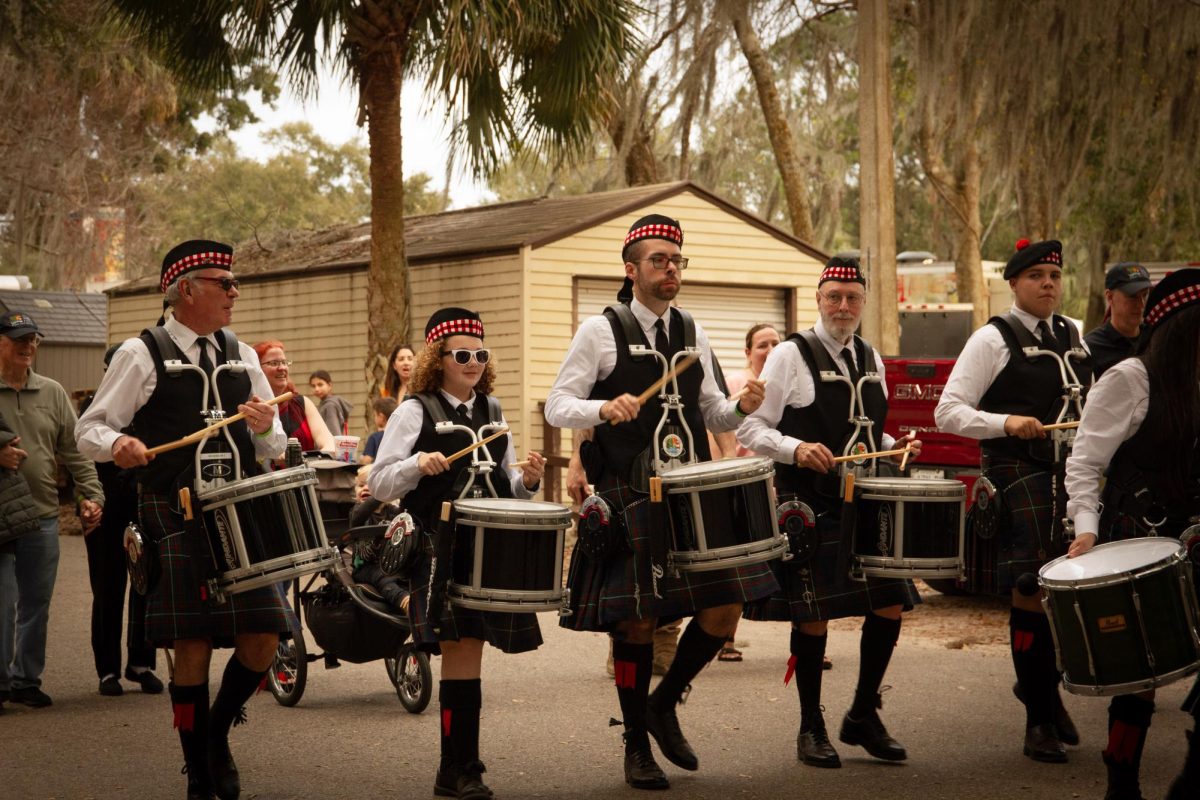
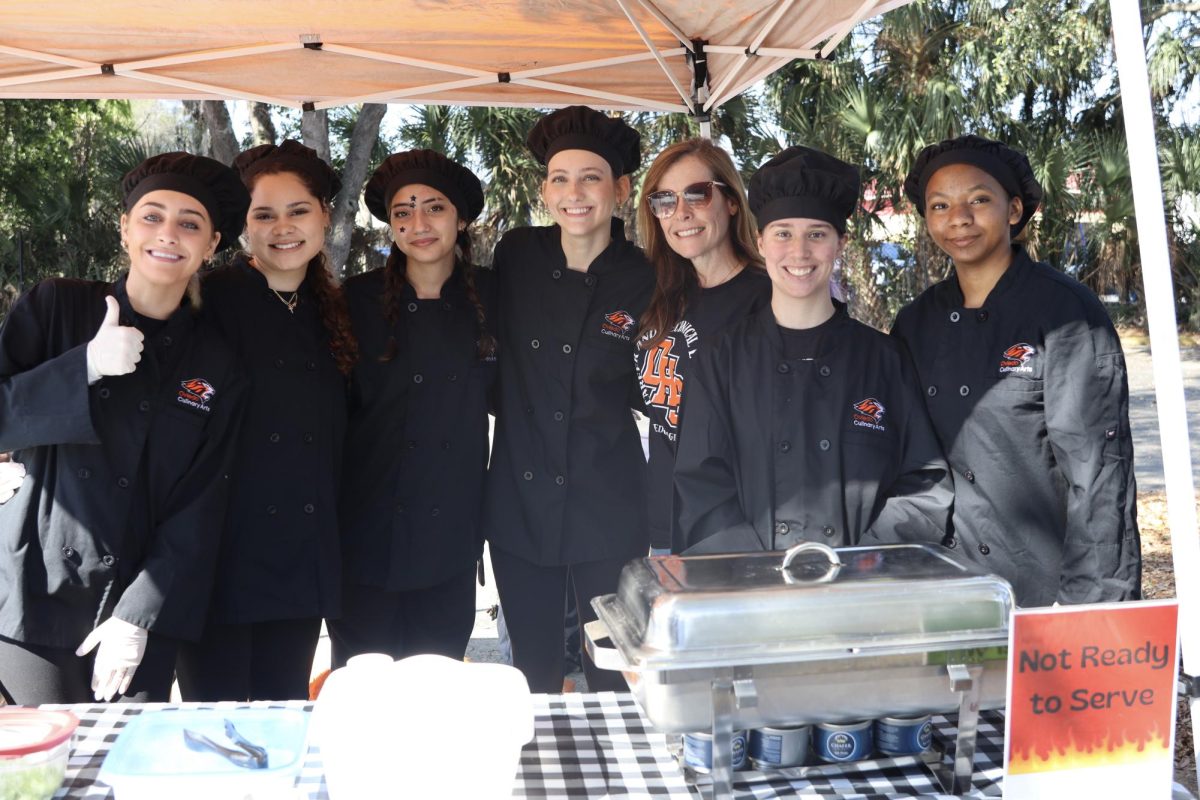
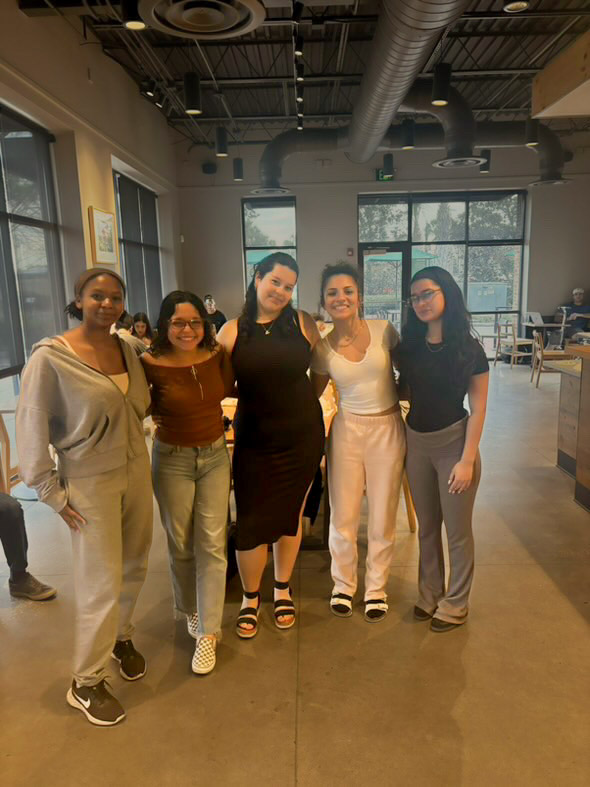

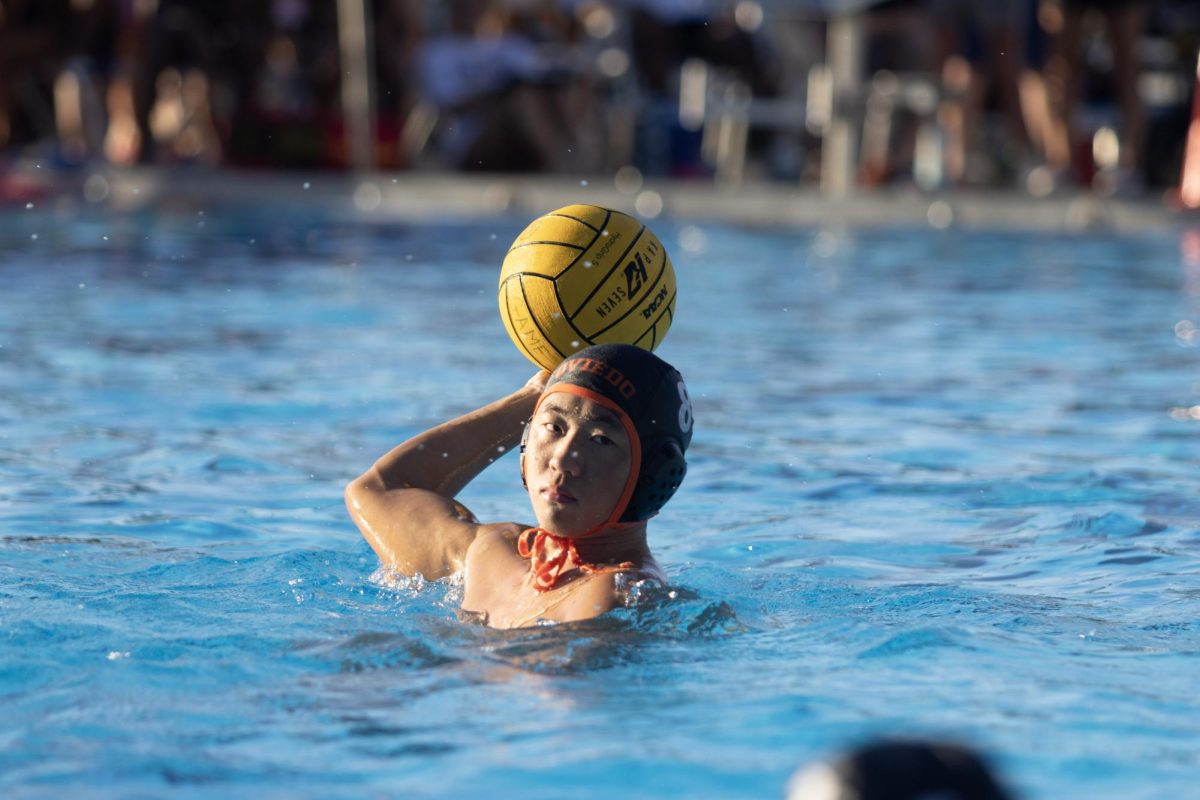

![Hopkins at Honor Grad with golf coach John McKernan. As Hopkins’ golf coach for the last two years he has seen Hopkins’ growth as a player and person along with their contributions to the team. “[Hopkins] has just been really helpful since I took [the golf team] over, just anything I wanted to do I ran by [Hopkins],” said McKernan.](https://oviedojournalism.com/wp-content/uploads/2025/05/B66A7760-800x1200.jpg)
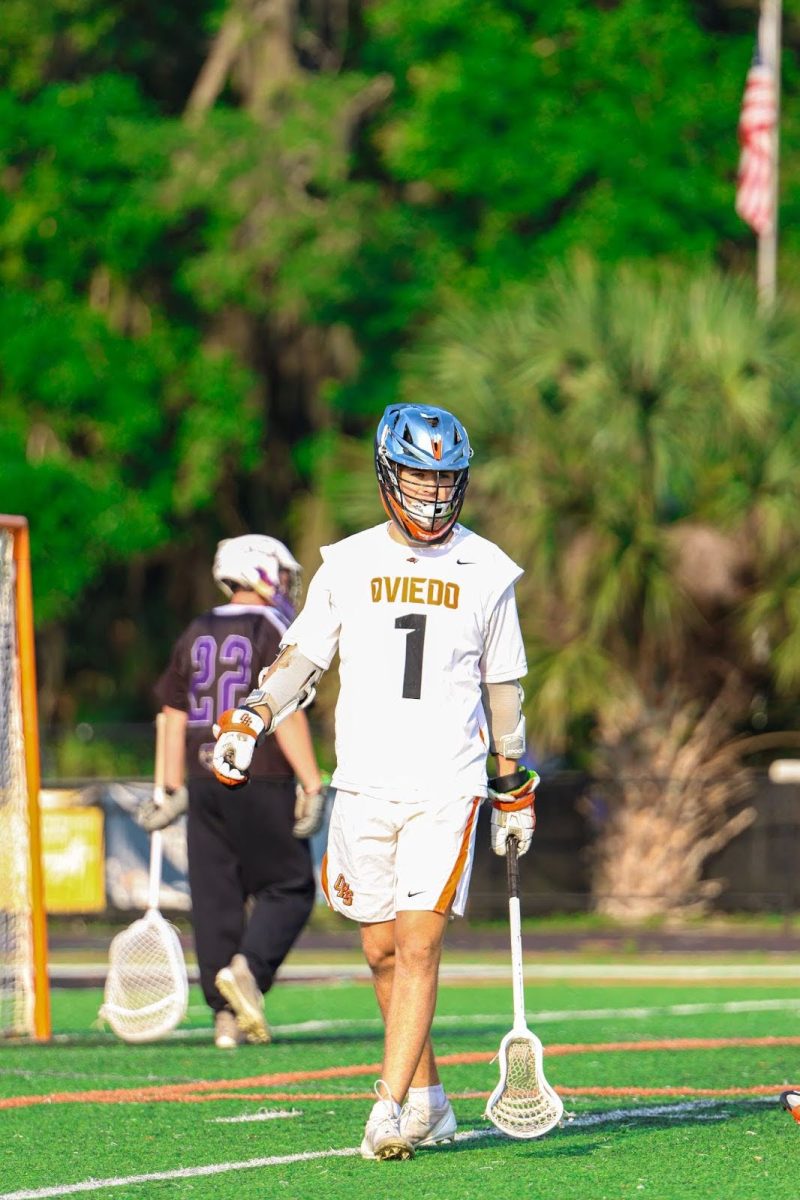
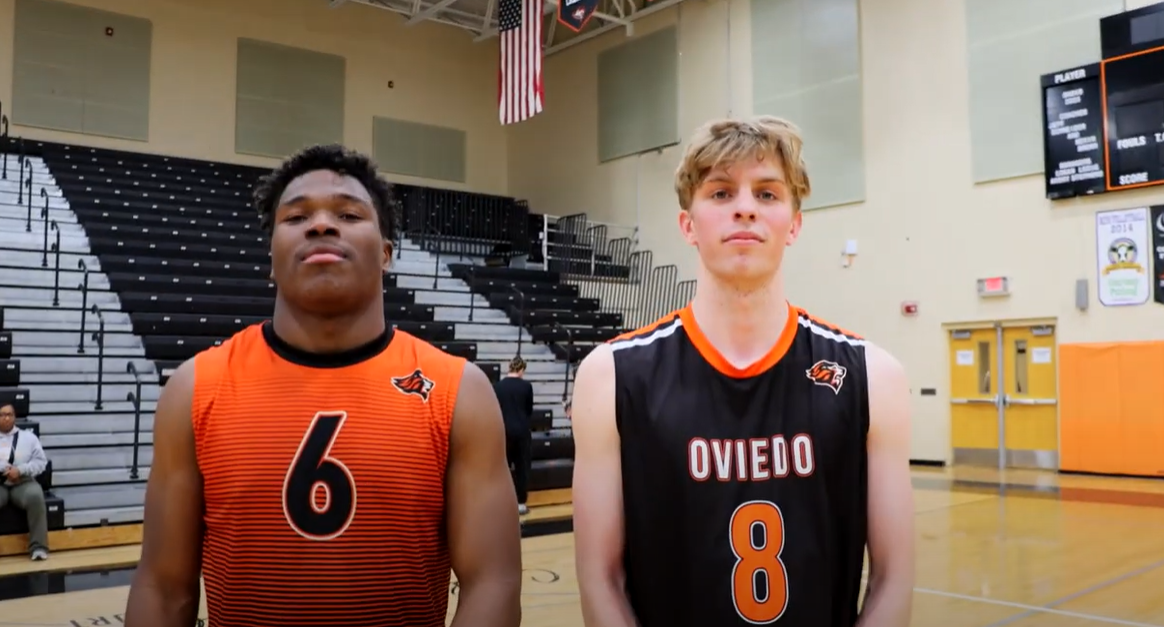
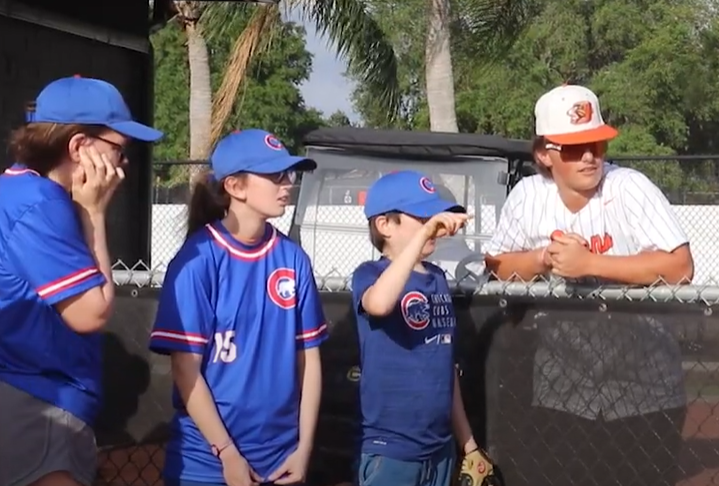
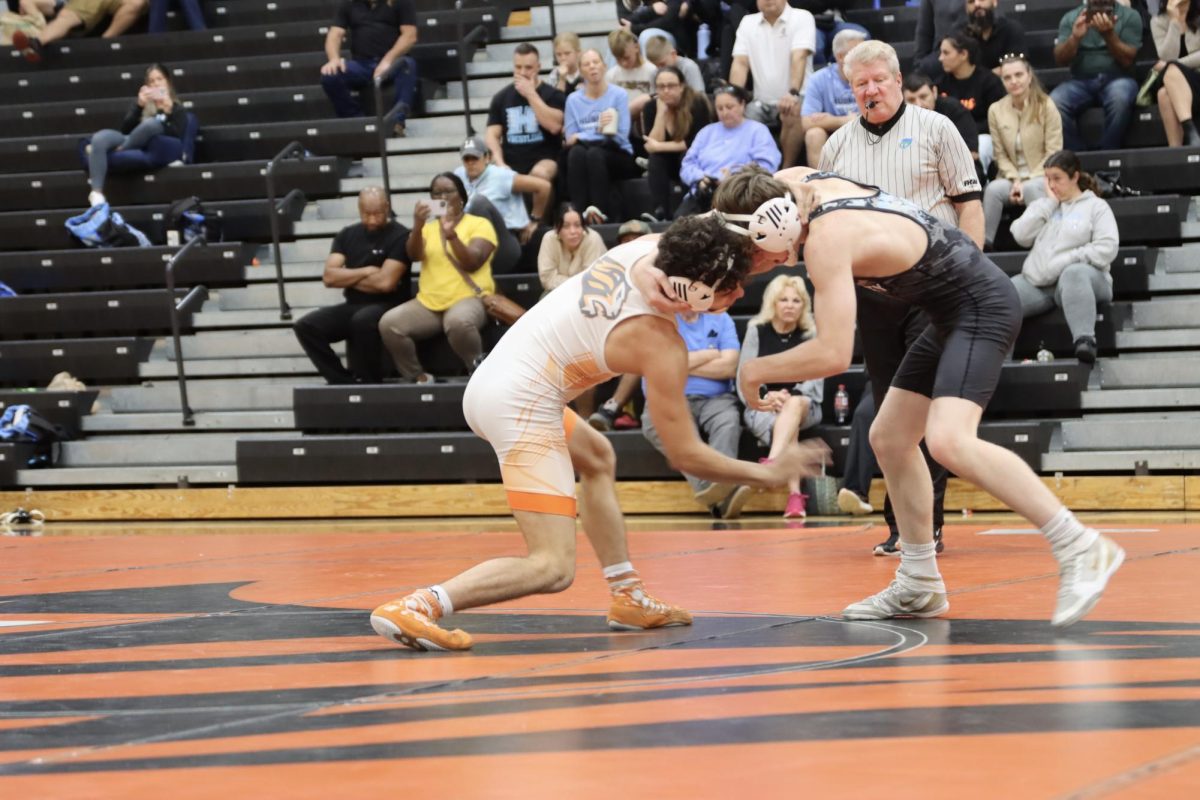
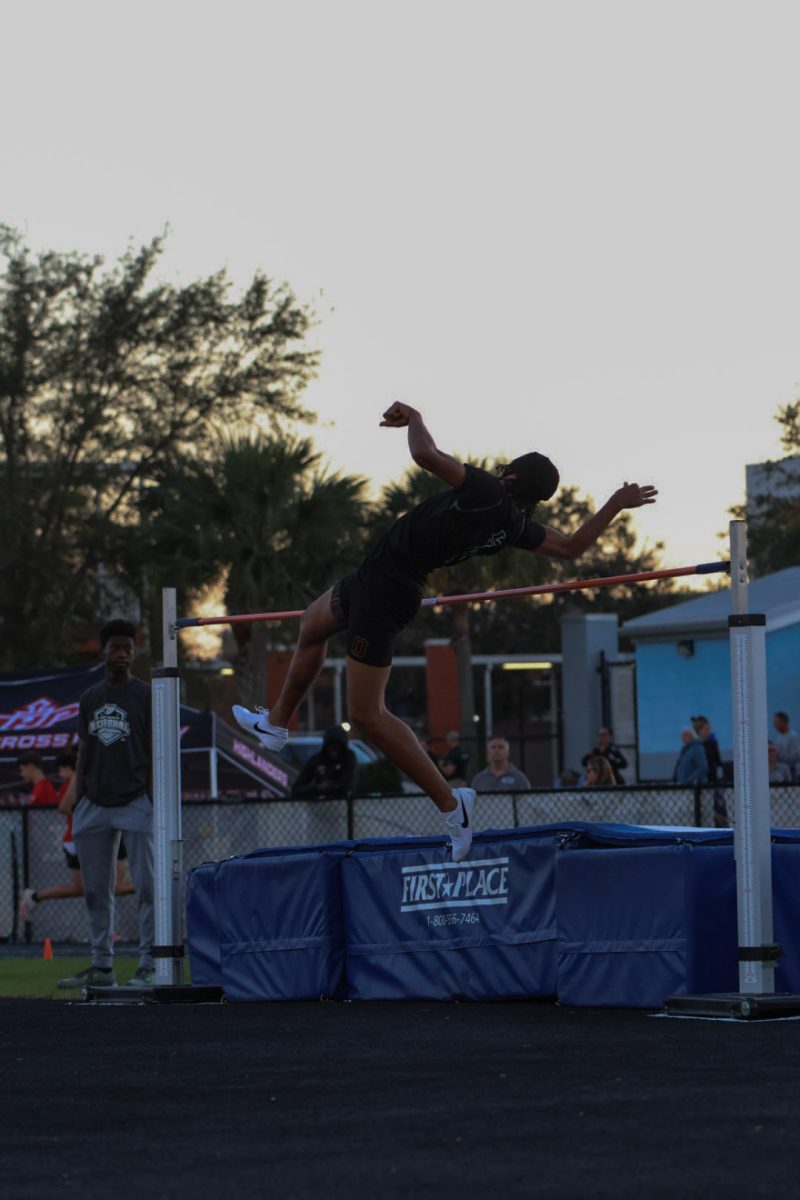







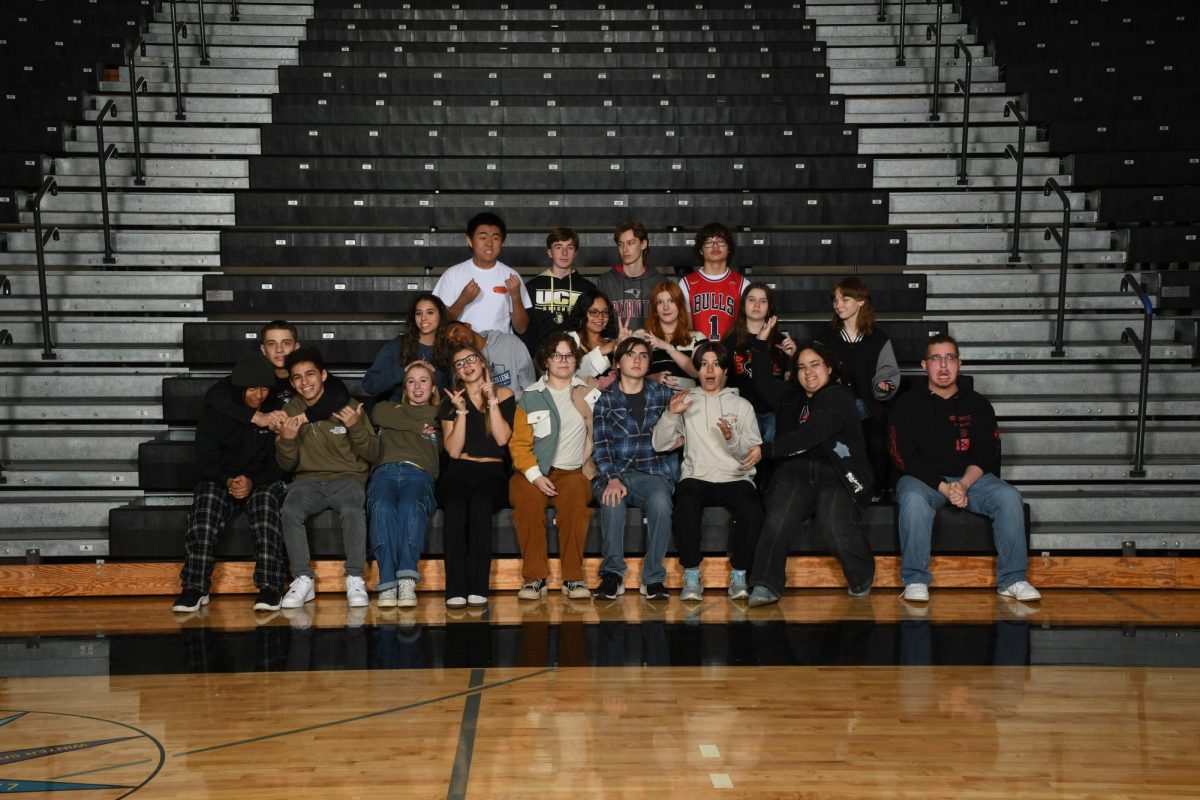

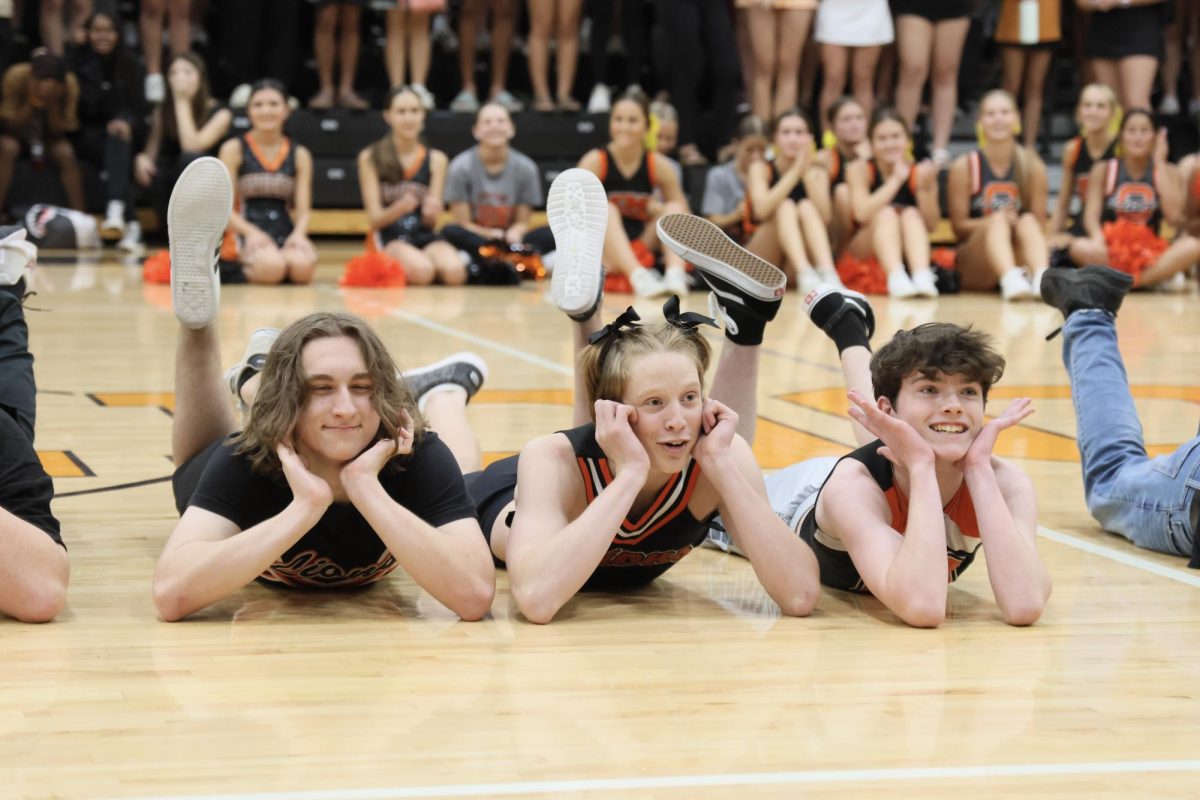


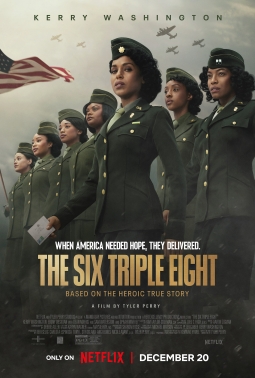




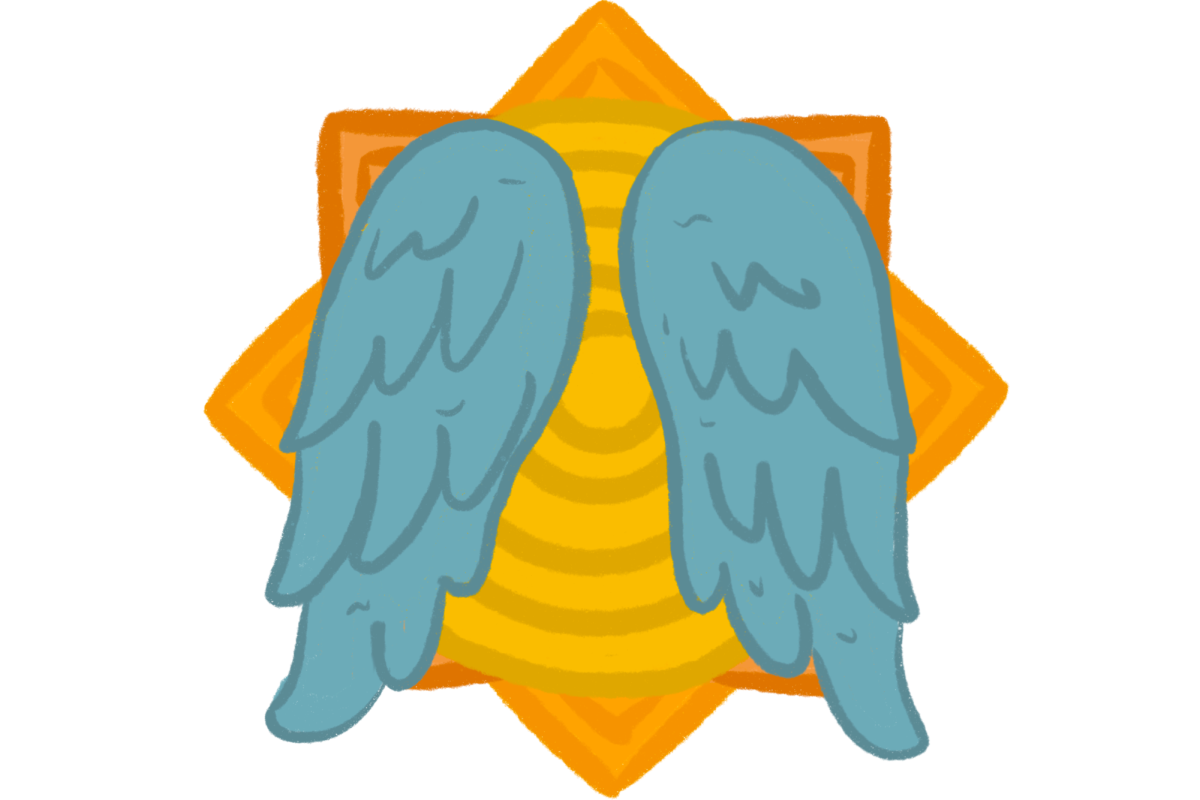



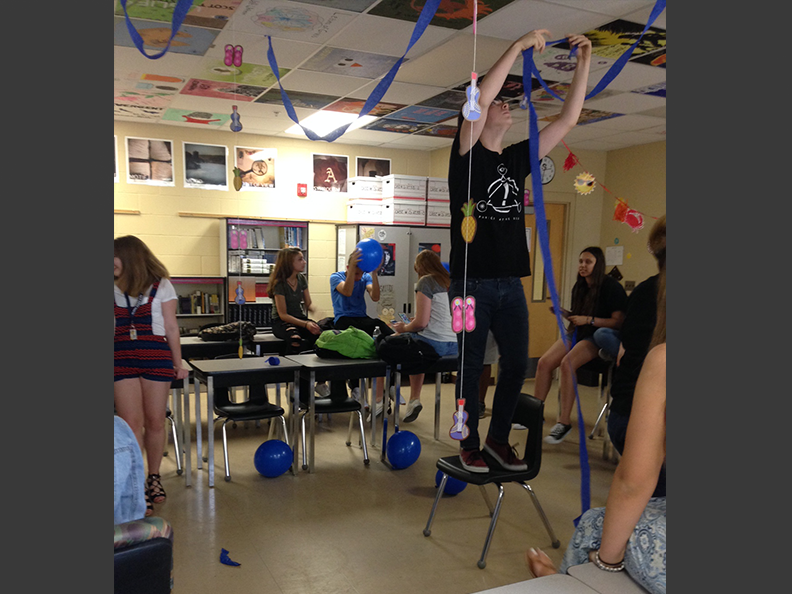
![Prom king Colin Napier and queen Leah Hopkins dance the night away during the Golden Gala on April 26th. Prior to the prom, the Student Government must make many preparations over the course of months in order to ensure it goes off without a hitch. However, their work eventually pays off when it comes time for the dance. “We set up [the prom] the day before, and it’s horrible. We’re there for a very long time, and then we get our beauty sleep, and then we get ready for prom the next day,” Aubrie Sandifer said.](https://oviedojournalism.com/wp-content/uploads/2025/05/Oviedo-197-400x600.jpg)
